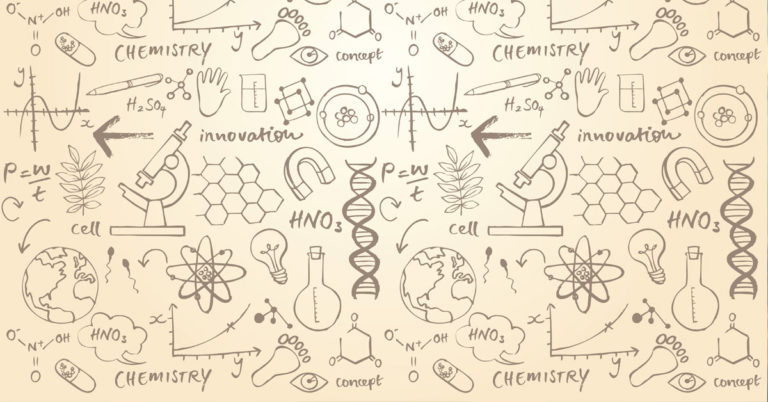

Proponents of the Law of Attraction appeal to a wide range of disciplines in order to explain and support the intuitive principles they believe.
For example, research in psychology, neuroscience, philosophy, and evolutionary biology can help to add extra dimensions to our understanding of how the Law of Attraction works.
Here are some of the most exciting things you should know about the science of the Law of Attraction. You may want to research these topics further in order to learn more!
As far back as 391 BC, the famous Greek philosopher Plato noted that “likes tend towards likes”. As you’ll know, this is extremely close to the slogan “like attracts like”.
Which encapsulates the key message of the Law of Attraction.
 2. The Power Of Positive Thinking Has Support In Medical Journals
2. The Power Of Positive Thinking Has Support In Medical JournalsOne prominent example of scientific support for the Law of Attraction is in the Yonsei Medical Journal in 2007.
Korean researchers Ji Young Jung et al found that there was a strong connection between positive thinking and overall life satisfaction in the population. This echoes the sentiments of scholars who suggest positive thinking exercises as a way to boost manifestation potential.
As the authors of the medical journal article noted, “these findings offer the promise of positive thinking as an approach for psychological interventions designed to promote life satisfaction.”
Scientists working at the Wellcome Trust Centre for Neuroimaging at the Institute of Neurology in London have discovered that people who visualize a better future are more likely to be able to bring that future into existence.
This, of course, is just what the Law of Attraction tells us. It says that daily, vivid mental images of a better life help to draw that life towards us. In the publication documenting their findings, the neurologists wrote: “The ability to construct a hypothetical scenario in one’s imagination prior to it actually occurring may afford greater accuracy in predicting its eventual outcome.”

Affirmations—another key tool in your Law of Attraction arsenal—are also well-supported in the psychological literature.
For example, one researcher at the University of Exeter has published on constructive repetitive thought. They found that people who consistently tell themselves that they can meet a goal are more likely to secure a positive outcome.
Affirmations are proven to help with recovery from trauma, improve anticipatory planning, aid treatment for depression, and boost physical health.
If you want to discover a range of affirmation examples and our full step-by-step guide, be sure to get access to your full LOA toolkit, just click here now.
A large part of the Law of Attraction is learning how to be an open, happy person who vibrates on a high frequency and induces a positive response in others.
The way in which we spread good attitudes toward other people and attract kindness, generosity, and success can be partly explained with reference to mirror neurons—neurons that “mirror” the behavior we observe.
In other words, when someone sees you radiating positivity, this same response is mirrored in the brain of the observer.
This can draw them to act positively towards you as well. Meanwhile, studies on the amygdala (the brain’s emotional center) show that we induce feelings of fear and anxiety in others if we ourselves are fearful or anxious!
This is further evidence to explain the Law of Attraction theorist’s claim that negative thinking can prevent success, well-being, love, and human connection.
 6. Geneticists Show That Limiting Beliefs Are Inherited
6. Geneticists Show That Limiting Beliefs Are InheritedYou shouldn’t feel guilty for your limiting beliefs, but rather work to identify and change them. Cutting-edge genetic research shows why you shouldn’t blame yourself for the negative beliefs that can stop you from manifesting effectively.
Specifically, scientists in Atlanta have found that when mice associated the scent of cherry blossom with an electric shock, they become so sensitive to that scent that they actually pass their fear to their offspring through their genetic code.
This means that even mice that did not experience a shock, will fear the scent of cherry blossom. Also, brain imaging studies show that this anxiousness is represented by the presence of different neurological receptors.
So, while you may have beliefs that are holding you back, you’re not solely responsible for them (though you do have the power to overcome them).
As the above suggests, academics from a wide range of fields have always been aware of some of the concepts that undergird the Law of Attraction, and there is increasing interest in finding new neurological evidence to support our ability to manifest what we want from life.
Keep an eye on the latest findings in biology, psychology, genetics, and neuroscience.
You’re sure to find out even more scientific Law of Attraction facts about why working with the Law of Attraction can be so effective.
Take a look at our Law of Attraction toolkit and receive the tools you need to start manifesting your dream life today!
The Law Of Attraction toolkit includes:
Click here to begin or enhance your Law of Attraction journey!
